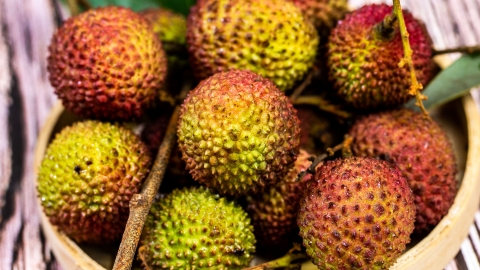Why can't cucumbers be eaten with lychees?
There are several reasons why cucumber and lychee should generally not be consumed together, including interference with nutrient absorption, blood sugar fluctuations, increased digestive burden, conflicting properties, and cumulative allergy risks. Details are as follows:

1. Interference with nutrient absorption: Cucumber contains vitamin C-decomposing enzymes, while lychee is rich in vitamin C. When consumed together, the enzymes in cucumber may degrade some of the vitamin C in lychee, affecting the body's absorption of vitamin C and reducing the nutritional value of lychee.
2. Blood sugar fluctuations: Lychee has a relatively high sugar content and glycemic index, whereas cucumber has low sugar content. Consuming them together may cause a rapid rise in blood sugar levels, which is unfavorable for individuals with unstable blood sugar control and may lead to significant fluctuations in blood glucose.
3. Increased digestive burden: Cucumber is cool in nature and contains considerable dietary fiber, while lychee is warm in nature and rich in fructose and organic acids. Consuming large amounts together may subject the gastrointestinal tract to both cold and heat stimulation. The combined effects of dietary fiber and organic acids may further increase the digestive burden, potentially causing indigestion.
4. Conflicting properties: Cucumber is cold in nature, while lychee is warm. Consuming large quantities together may create conflicting hot and cold effects within the body, disrupting the balance of yin and yang. Individuals with sensitive constitutions may experience discomfort, such as diarrhea in those with spleen and stomach deficiency-cold.
5. Cumulative allergy risks: Although the risk of allergy from either cucumber or lychee alone is relatively low, individuals with specific body constitutions may experience an increased risk of allergic reactions when both are consumed together. Components in both foods may interact and trigger or exacerbate allergic responses.
In daily life, individuals may consume appropriate combinations based on personal taste and nutritional needs, while maintaining dietary diversity and balance.
References:
[1] Li Li. Scientific Analysis of Common Food Pairings [M]. Beijing: China Light Industry Press, 2021.
[2] Chinese Nutrition Society. Chinese Dietary Guidelines (2022) [M]. Beijing: People's Health Publishing House, 2022.




